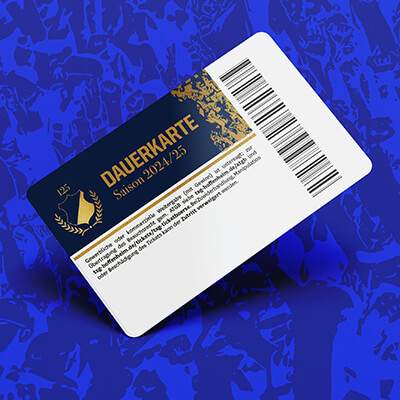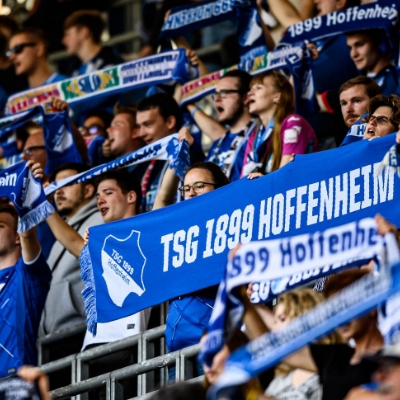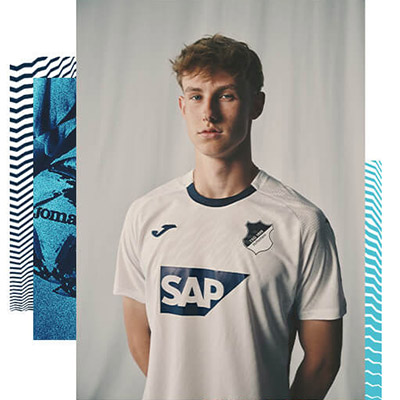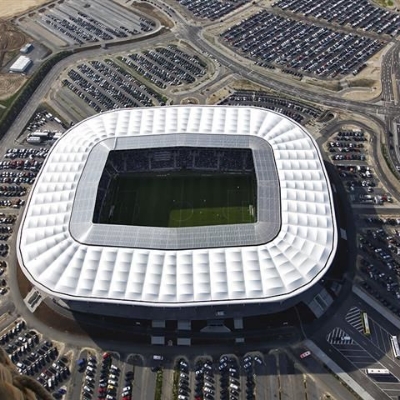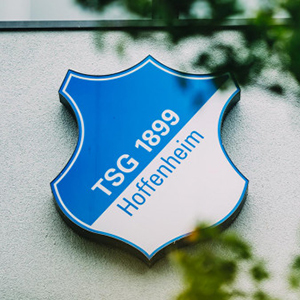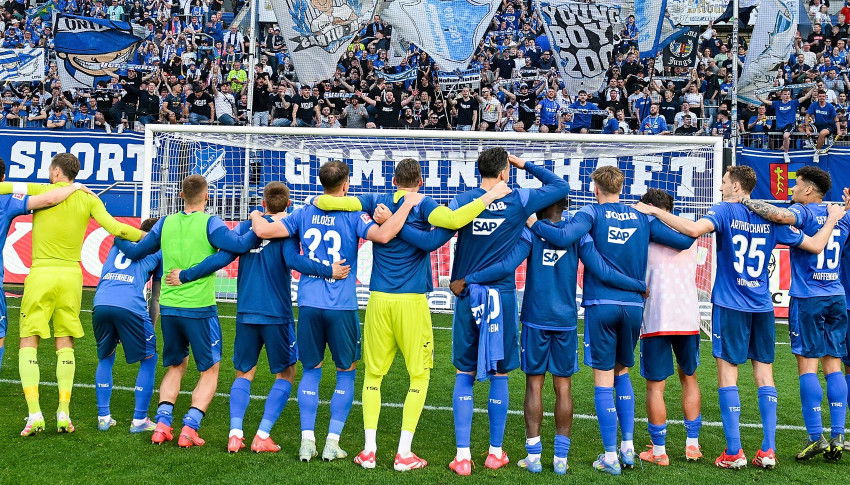Oliver Baumann: "I haven't set myself any limits"
Oli, you've reached three milestones this season: you made your 400th Bundesliga appearance, played your 300th competitive game for TSG and kept your 100th clean sheet in the Bundesliga. What do those landmarks mean to you?
"First of all, it shows me I've already been around for quite a while (laughs). I don't often say that I'm proud of myself, but I was after reaching those numbers. Not many players reach 400 Bundesliga matches in total and 300 games for TSG. Not many goalkeepers manage 100 clean sheets either. One hundred clean sheets, that's pretty good. The three milestones are cool, I was really happy about them. But then I was like: 'OK, the 401st has to be good too, the 402nd too.' If I carry the past with me into the present, mistakes can happen. You can only enjoy it for a very short time and then you have to start from scratch again. I actually start from scratch again every day because if you rest on your laurels, you don't improve."
The Bundesliga break started early – after Matchday 15 – due to the World Cup in Qatar. Can you already draw a conclusion about how the first phase of the season went for TSG?
"We have set ourselves on the right path and have improved many things under André Breitenreiter this season; the footballing development has always been discernible. Things are moving in the right direction. But we've dropped too many points recently. We need to take the next steps, become even clearer and make the dominance that we had in all our matches count better. The break comes at a good time for us; we need to work hard on ourselves and be honest in our analysis in order to build on our good performances from the opening games of the season in the New Year."
You've just mentioned the coach specifically. How do you view his work as the team's vice-captain?
"He has a lot of experience, which the team and the club need – particularly after last season. I think it was the perfect move to bring him in. He makes super decisions on and off the pitch and he has us playing attractive football, which is a good fit for our team and the club. He demands things and when something doesn't go well, he is also a very good communicator (laughs). Or lets his actions do the talking. He is very clear – the overall package is good."
"I try to keep improving in every respect"
You seem to be very clear too. Those who know you well say that at 32 years of age you're still looking for ways to improve.
"I try to keep improving in every respect. Whether it's crosses, footwork, defending the goal, one-on-one situations – you can really perfect everything. That has always been my approach and I think this is the right way as I currently feel very comfortable with it. It must be every goalkeeper's objective not to make any mistakes. That's why I'm very detail-oriented and try to go about every action with complete awareness, not just somehow saving the ball but holding onto it or parrying so that the probability of an opponent getting to it is minimal."
Does that mean that you are as focused on a rolling ball as you are on a free kick or a one-on-one?
"If you think, 'Yeah, I've got this one' for a simple ball, then you'll make mistakes. It's a stupid saying that the next game is always the hardest; but in the same way, for me, the next action is always the hardest, no matter how easy it appears. That's my approach."
There are more than a few pundits who believe that the goalkeeper is the most important position in football. Do you agree with that?
"I also think so, but I'm not exactly neutral about it (laughs). You sometimes hear goalkeepers say that they have the toughest position because you're constantly throwing yourself around, on hard pitches in the wintertime; you have these one-on-one situations in games where you're moving in opposite directions to the opposing players, and it can be dangerous. For me, goalkeeping is a different sport to being outfield."
You would go as far as to say that, in principle, you are playing a different sport to your team-mates?
"That's the case in my eyes. My kind of goalkeeping demands that too. We goalkeepers train a lot more than the outfield players; we start before the team, do more strength training than most, and then there's the mental and neuro training. Across the five training days per week, that adds up to between three and four hours of extra work that we do in the TSG goalkeeping group."
How long do you want to keep putting in this effort for?
"Fundamentally, I'd like to play for a few more years, but perhaps it gets too much for me and I say: 'Hey, I'm just not up for it anymore because I've sacrificed my whole life for football.' But at the moment I'm still enjoying it too much and I don't enough pain to not keep going (laughs). Touch wood (taps on the table). But maybe the pain will come one day."
How strong is the feeling that you have to sacrifice a lot for your career?
"I don't have a problem with it at all during the week but when I've had free weekends because of international matches, it's dawned on me how many days a year we play. It is of course special to play in the Bundesliga, but you also invest an enormous amount of time. You lose a lot of weekends because after a game on the Saturday, training starts again on the Sunday morning. Half a day off is not a real weekend. You lose time with your wife, family and friends. Many people underestimate that. People often say: 'Footballers earn a lot of money and have a lot of time. But I don't have much time as I have to invest a hell of a lot in my job to ensure that I'm pain-free and I perform. Nobody forces me to do that, of course. But I haven't reached the point where I'm saying: 'No, I don't want to do that anymore.'"
"I'm still far too ambitious to think about not playing anymore"
Have you already drawn up a career plan and thought about how long you want to keep playing for? Or will you decide spontaneously that you don't feel like it anymore?
"I haven't currently set myself a limit. Perhaps I'll still be playing at 38 or 39. Or maybe I'll say I'll sit on the bench for another two years, teach the young players a thing or two, and bring them up to speed. But as it stands, I'm still far too ambitious to think about not playing anymore. I have goals; I want to play international football with TSG again and make an appearance for my country. So there are no concrete thoughts about ending my career yet. Let's put it this way: I'm not done yet."
You've described that you are focused on your job. Can you imagine what it would mean to really quit one day?
"I've done nothing else my whole life. I turned professional at the age of 18 and before that, as a youth player, my focus was on football. For 20 years, every day has been structured. Training, eating, sleeping. I think I'll face some totally new problems when I stop playing football. How do I structure the day then? The week? I don't know yet. Now and for the last 20 years, I've been getting a new plan each week for what every single day looks like."
What path would you have taken without professional football? Can you envisage that?
"I don't know, as things were simply going too well in football. I went straight from the youth set-up to the amateurs at SC Freiburg. When I signed my first amateur contract, I received a salary that an adult can live on – especially as I still lived with my parents at the beginning. Then I did my civil service as a caretaker at the Freiburger Turnerschaft (a sports club in Freiburg) and played football on the side. That was also good for my life as a footballer because I saw what normal work is. If it hadn't worked out in professional football, I would've stayed true to the sport somehow – but I don't know in what form."
Even if you don't yet know when you'll stop, do you already have plans for after your playing career?
"They are connected to sport or football. I'm not really thinking about becoming a coach at the moment because I want to have the weekends free. It'd be fun for me to pass something onto young players because I see how the boys come to us here and are still missing a lot of things. Passing on my experience, in whatever form – whether it's just to goalkeepers or to outfield players too – would give me great pleasure. I could probably teach goalkeepers a lot. But I don't know yet what that would look like. But as a classic coach, like Michael Rechner is for me, wow...that would be an extreme amount of work. He is at home even less than I am. I want to build something after my career. Whether that's at club level or perhaps even with the DFB, giving young people advice and support, that remains to be seen. But I don't want to invest more time than I do now. That's not even possible in practical terms."





